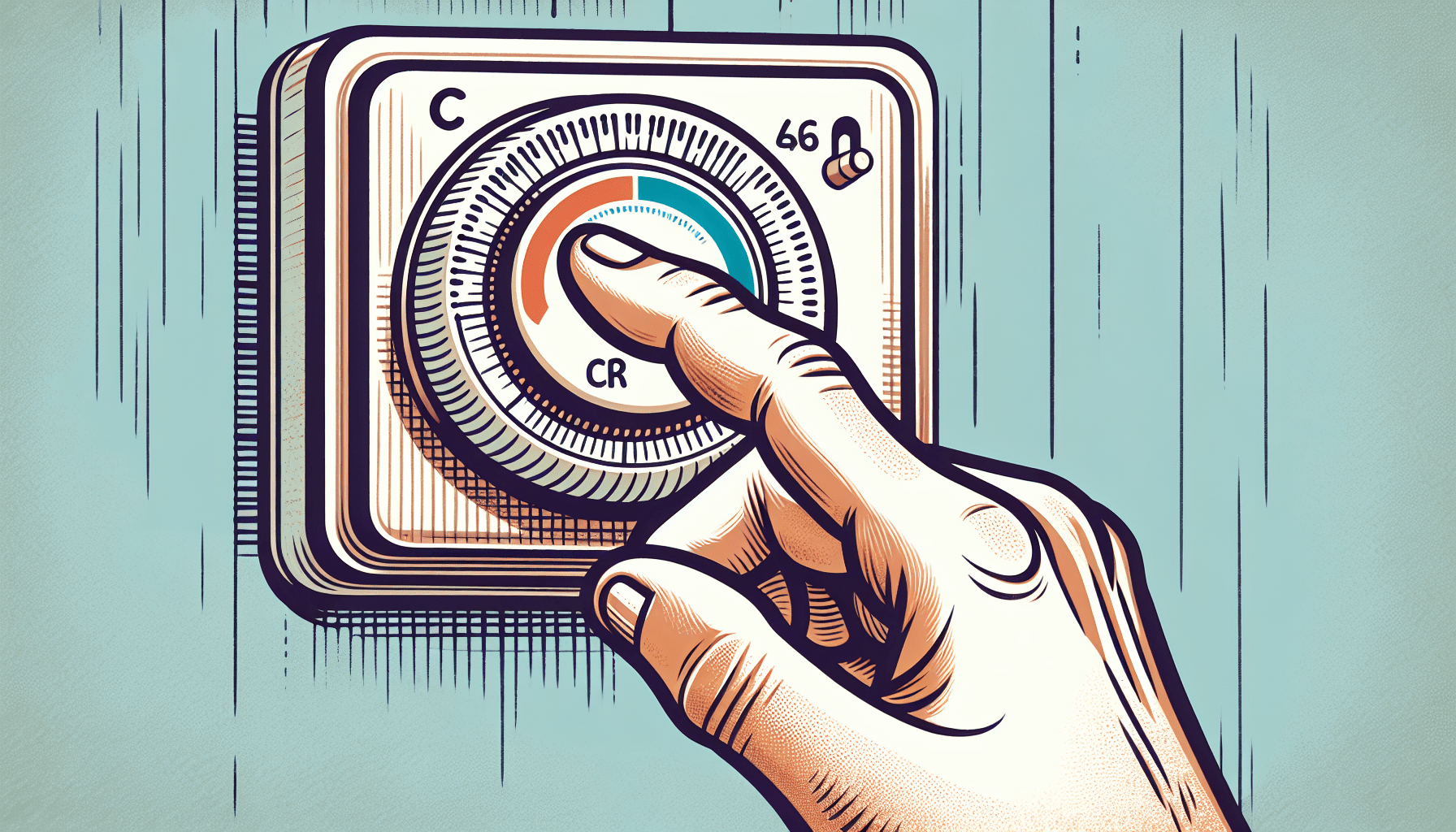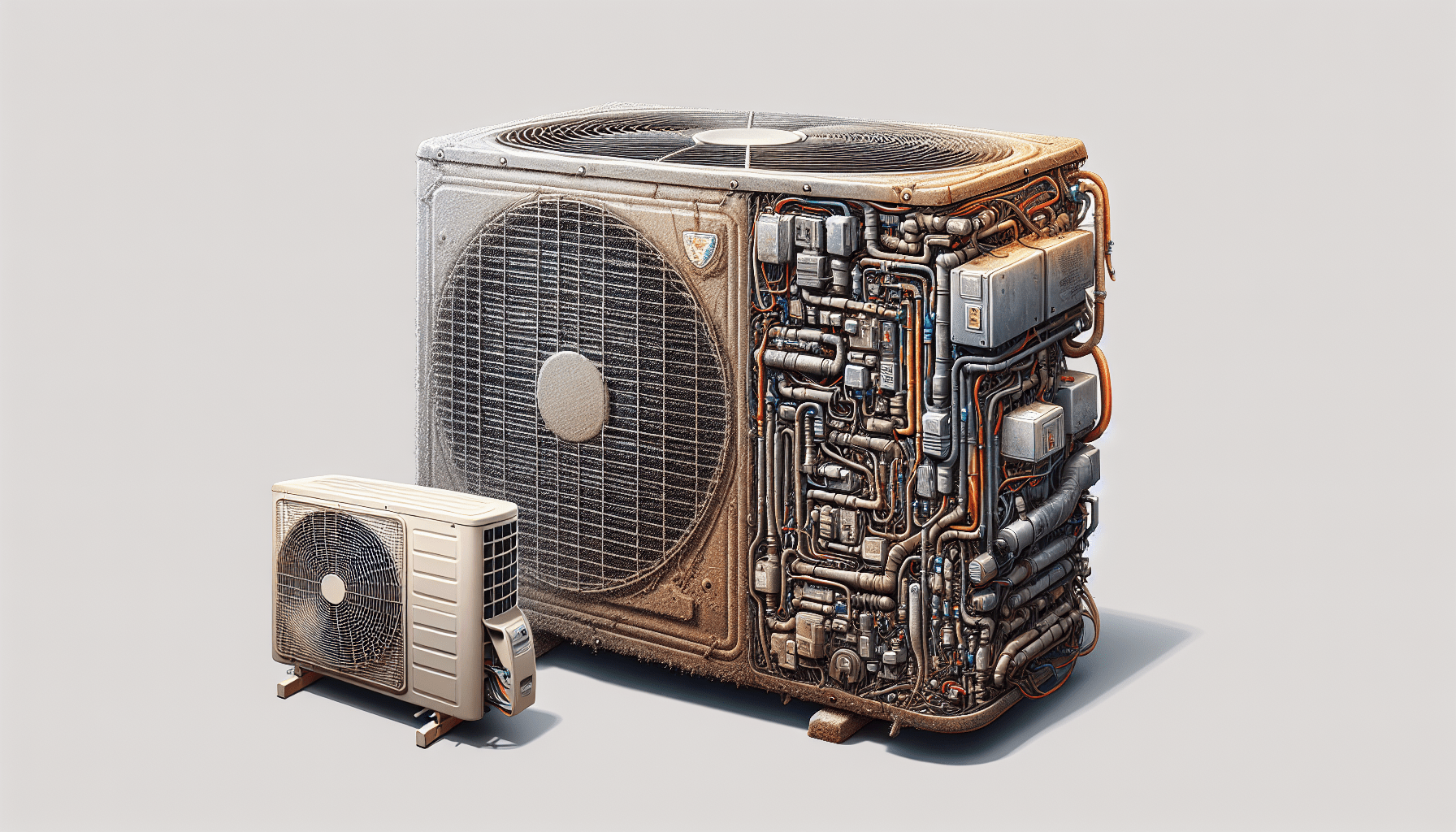Have you ever wondered if your 20 year old AC unit would be covered under a home warranty? Well, you’re not alone. Many homeowners are concerned about the longevity of their appliances and whether or not they can be protected under a warranty. In this article, we will explore the possibility of your 20 year old AC unit being covered and provide some insights into the factors that may affect that coverage. So sit back, relax, and let’s dive into the world of home warranties and AC units!
Understanding Home Warranties
What is a home warranty?
A home warranty is a contract between a homeowner and a warranty company that provides coverage for the repair or replacement of major systems and appliances in the home. It offers protection against unexpected breakdowns, reducing the financial burden of repairs and replacements.
How do home warranties work?
Home warranties work by providing coverage for certain items in your home that experience normal wear and tear. When a covered item malfunctions or breaks down, you simply contact the warranty company and they will arrange for a service technician to assess and repair or replace the item. The homeowner pays a set service fee or deductible for each service call, and the warranty company covers the remaining cost of the repairs or replacement.
What does a home warranty cover?
A home warranty typically covers major systems such as HVAC (heating, ventilation, and air conditioning), plumbing, electrical, and appliances such as refrigerators, dishwashers, and ovens. However, the coverage can vary depending on the specific home warranty plan you choose. It’s essential to read the contract and understand the coverage limits and exclusions.
Exclusions and limitations
While home warranties provide valuable coverage, it’s important to note that there are often exclusions and limitations. These can include pre-existing conditions, inadequate maintenance, and systems or appliances beyond a certain age. It’s crucial to review the terms and conditions of the home warranty carefully to understand what is and isn’t covered before purchasing a plan.
Assessing Your AC Unit’s Warranty Coverage
Age of the AC unit
The age of your AC unit plays a significant role in determining its eligibility for coverage under a home warranty. Most home warranty providers do not cover units over a certain age, typically around 10 to 15 years. As your AC unit is 20 years old, it is unlikely to be covered under a standard home warranty plan.
Home warranty terms and conditions
It is essential to review the terms and conditions of the home warranty policy carefully. Some warranties may have specific clauses or provisions that exclude older units, regardless of their working condition. Understanding these terms will give you a clear picture of whether or not your AC unit can be covered.
Existing warranties or service plans
Check if your AC unit has any existing warranties or service plans. Sometimes, manufacturers provide longer warranty periods for AC units, which can cover repairs or replacements. If you have a separate warranty or service plan already in place, it may be more beneficial to contact the manufacturer directly for assistance.
Pre-existing conditions
Home warranties generally do not cover pre-existing conditions, which are issues that existed before purchasing the warranty. If your AC unit has a history of problems or required repairs before obtaining the warranty, it might not be eligible for coverage. However, it is still worth reaching out to the warranty provider to confirm eligibility.
Factors Influencing AC Unit Coverage
Specific home warranty policies
Different home warranty companies offer various policies with different coverage options. Some providers may have plans specifically tailored to cover older AC units, while others may exclude them. It’s essential to research and compare different home warranty policies to find one that suits your needs and potentially covers your 20-year-old AC unit.
Plan inclusions and coverage levels
Even if a home warranty provider claims to offer coverage for older units, it is essential to review the plan inclusions and coverage levels. Make sure that the policy explicitly states coverage for AC units of your AC unit’s age. Pay close attention to any coverage limits, such as repair cost caps or depreciation considerations, as these can affect the financial value of the warranty.
Premiums and deductibles
Consider the premiums and deductibles associated with the home warranty policy. The cost of the warranty coverage and the amount you would need to pay out of pocket for each service call are important factors to consider. Compare different providers to ensure you are getting the best value for your money.
Renewal terms and conditions
Take note of the renewal terms and conditions of the home warranty policy. If you plan to keep your 20-year-old AC unit for an extended period, check if the warranty allows for renewals after the initial term. This way, you can ensure continuous coverage and peace of mind.
Considering the Age of Your AC Unit
Typical lifespan of an AC unit
The typical lifespan of an AC unit ranges from 15 to 20 years. While some units may last longer with proper maintenance, it is crucial to consider the age of your AC unit when evaluating warranty coverage. Older units are more prone to breakdowns, and finding coverage becomes more challenging.
Manufacturer’s warranty period
Check if your AC unit is still within the manufacturer’s warranty period. Manufacturers often provide their own warranties that cover repairs or replacements during the specified timeframe. If your unit is still under warranty, it is advisable to reach out to the manufacturer for assistance rather than relying solely on a home warranty.
Extended warranty options
If your AC unit is not covered by a manufacturer’s warranty or a standard home warranty, consider purchasing an extended warranty. Extended warranties provide additional coverage beyond the typical warranty period and can be tailored to cover specific systems, including older AC units. Research different extended warranty options to find one that suits your needs.
Depreciation and fair market value
As an AC unit ages, its value depreciates, both in terms of functionality and market worth. Home warranties often consider depreciation when assessing claims for older units. This means the coverage amount may be reduced based on the unit’s age. Keep this in mind when determining whether it is financially viable to seek coverage for your 20-year-old AC unit.
Reviewing Home Warranty Policies
Read the contract thoroughly
Before purchasing a home warranty, it is crucial to read through the contract carefully. Pay attention to the coverage details, exclusions, and limitations stated in the policy. Understanding the terms and conditions will prevent any surprises or misunderstandings down the line.
Verifying AC unit coverage
Make sure to verify whether your AC unit is explicitly covered under the home warranty policy. Look for specific mentions of age limits, coverage periods, and repair or replacement criteria. When in doubt, contact the warranty provider directly to clarify any questions you may have.
Understanding coverage limits
Home warranty policies often come with coverage limits. These limits may include maximum repair or replacement costs, caps on specific items, or restrictions on certain parts or components. Familiarize yourself with these coverage limits to manage your expectations regarding the financial value the warranty provides.
Carefully review exclusions
Home warranties typically have exclusions that specify what is not covered. These exclusions can include specific AC unit components, certain types of damage, or issues related to improper maintenance. By reviewing the exclusions, you can assess whether the warranty provides sufficient coverage for your 20-year-old AC unit.
Determining Eligibility and Coverage
Contacting the home warranty provider
To determine if your 20-year-old AC unit is eligible for coverage, contact the home warranty provider directly. Reach out to their customer service or claims department to discuss your specific situation. They will be able to provide you with accurate information regarding your unit’s eligibility and coverage.
Researching warranty coverage options
If your current home warranty provider does not offer coverage for your 20-year-old AC unit, consider researching other warranty companies. Some providers specialize in older unit coverage and may have suitable policies available. By expanding your search, you increase the chances of finding a warranty that meets your needs.
Requesting a service call or inspection
To assess the condition of your AC unit and determine if it meets the warranty provider’s criteria for coverage, request a service call or inspection. A qualified technician can evaluate the unit and provide a detailed report, which you can then submit to the warranty company for review.
Documenting the unit’s condition
When seeking warranty coverage, it’s important to document the condition of your AC unit. Take photos, keep maintenance records, and note any previous repairs or issues. Having this documentation can help support your claim and increase the likelihood of approval in case of breakdowns or malfunctions.
Alternatives to Home Warranty Coverage
Purchasing a separate extended warranty
If your 20-year-old AC unit is not eligible for coverage under a home warranty or an existing manufacturer’s warranty, consider purchasing a separate extended warranty specifically for your AC system. Extended warranties offer additional protection beyond the typical warranty period and can cover repairs or replacements.
Considering a service contract
Service contracts are another alternative to home warranty coverage. Similar to warranties, service contracts provide coverage for repairs or replacements. However, service contracts often have more flexibility in terms of coverage and can be customized to suit the specific needs of your 20-year-old AC unit.
Exploring manufacturer’s warranty
Even if your AC unit is beyond the typical warranty period, it is worth exploring if the manufacturer offers any extended warranty options. Some manufacturers provide extended warranty coverage for their products, allowing you to continue enjoying protection against unexpected breakdowns.
Self-insure against potential repairs
If warranty coverage is not available or financially viable, it may be wise to set aside funds specifically for potential AC repairs or replacements. Self-insuring allows you to take care of any future expenses without relying on a warranty or service contract. Consider budgeting for regular maintenance and saving for potential repairs to ensure you’re prepared.
Importance of Regular Maintenance
Extending the lifespan of your AC unit
Regular maintenance is crucial for extending the lifespan of your AC unit, regardless of warranty coverage. Schedule annual check-ups, clean or replace filters regularly, and keep the unit free of dirt and debris. Taking care of your AC system can help minimize breakdowns and ensure it operates efficiently for as long as possible.
Preventing costly repairs
Routine maintenance also helps prevent costly repairs. Small issues, if left unattended, can escalate into major problems that require expensive repairs or even complete system replacements. By addressing any minor concerns during regular maintenance, you can save yourself from substantial financial burdens in the future.
Meeting home warranty requirements
If your 20-year-old AC unit is eligible for home warranty coverage, regular maintenance is often a requirement to keep the warranty valid. Warranty providers may ask for proof of regular maintenance as part of the claims process. By fulfilling this requirement, you ensure that your warranty remains in effect and protects your investment.
Documenting maintenance for claims
To support any warranty claims for your AC unit, it’s essential to document the maintenance you have performed. Keep a record of service receipts, maintenance checklists, and any notes or recommendations from technicians. These documents serve as evidence of regular care and can assist in obtaining coverage under the warranty.
Researching Home Warranty Providers
Comparing different home warranty companies
When researching home warranty providers, take the time to compare their offerings. Look at the coverage options, pricing, and customer reviews. Consider factors such as customer service responsiveness, claim resolution speed, and overall satisfaction to get a comprehensive understanding of each company’s reliability and reputation.
Reading customer reviews and ratings
To gauge the quality of a home warranty provider, read customer reviews and ratings online. These reviews provide insights into other homeowners’ experiences with the company’s service, reliability, and claim resolution process. Look for patterns and common themes in the reviews to help guide your decision-making process.
Checking company reputation and accreditation
Before committing to a home warranty company, check their reputation and accreditation. Look for industry certifications, ratings from organizations such as the Better Business Bureau, and any awards or recognitions they have received. A reputable warranty provider is more likely to provide reliable service and honor their commitments.
Investigating claim resolution process
The claim resolution process is a critical aspect of any home warranty policy. Before selecting a provider, investigate how they handle claims. Determine if they have a dedicated claims department, their response time for emergencies, and how they typically handle disputes or denials. A transparent and efficient claim resolution process is essential for a positive warranty experience.
Making an Informed Decision
Assessing the cost-benefit of home warranty
When making a decision about home warranty coverage for your 20-year-old AC unit, carefully assess the cost-benefit ratio. Consider the cost of the warranty premiums, deductibles, and service fees compared to the potential repair or replacement costs of your AC unit. Determine if the peace of mind and financial protection offered by the warranty outweigh the associated expenses.
Considering the overall coverage package
Evaluate the overall coverage package offered by the home warranty provider. While the AC unit coverage is crucial, assess if the policy provides comprehensive coverage for other major systems and appliances in your home. Finding a warranty that offers broad coverage ensures that you are protected against multiple potential breakdowns.
Weighing alternative repair or replacement costs
Think about the potential costs of repairing or replacing your 20-year-old AC unit without warranty coverage. Obtain estimates from reputable HVAC technicians to understand the financial implications. Compare these costs to the cost of a home warranty policy, considering the deductibles and service fees. This comparison will help you determine the most cost-effective option.
Seeking professional advice if unsure
If you are still unsure about whether to pursue a home warranty for your 20-year-old AC unit, it is worth seeking professional advice. Consult with HVAC specialists, repair technicians, or even real estate professionals who have experience with home warranties. Their expertise can provide insights and guidance to help you make an informed decision.
In conclusion, understanding home warranties and assessing if your 20-year-old AC unit is eligible for coverage requires careful consideration of various factors. Review the terms and conditions of different home warranty policies, weigh the cost-benefit, and assess alternative options. Regular maintenance and documenting the unit’s condition are essential, regardless of warranty coverage. By conducting thorough research and seeking professional advice if needed, you can make an informed decision that best suits your needs and budget.





